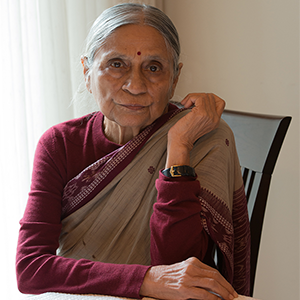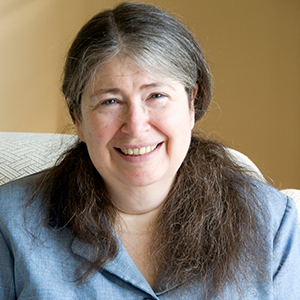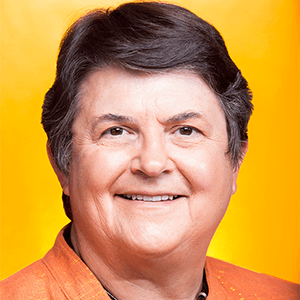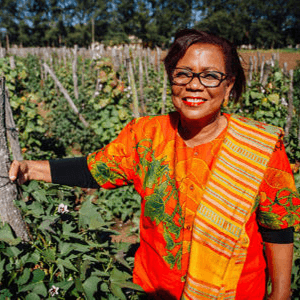Digital Green, in collaboration with JEEViKA and RySS, organized a seminar on the “Role of Technology and Data Science in Accelerating Climate Smart Agriculture Outcomes” on 5th August 2021. This event brought together diverse stakeholders, including thought leaders, experts, donors, policymakers, and practitioners to discuss, learn, share and explore opportunities for investing in technology and science-based solutions to scale and deepen the impact of climate-smart agriculture.
Krishnan Pallassana, Country Director – India for Digital Green, said that the seminar has highlighted the important and catalytic role that technology and data science can play in empowering farmers to strengthen resilience, improve sustainable production and become active partners in the development process. He further added that the ideas and concrete suggestions that have come out of this impactful event can vitalise the sector and Digital Green is committed to work with others to provide best possible support to farmers.
The speakers and panelists in the seminar cautioned that the threat of global warming and climate change to agriculture is real and severe, affecting food systems locally and globally. On one hand farmers are one of the most at-risk groups vulnerable to climate change, and on the other agriculture is a major contributor to the climate crisis generating close to one-fifth of the total greenhouse gas emissions. There is an urgent need to take immediate action in mitigating this issue by investing in climate smart agriculture. A coordinated action to scale climate smart agriculture will go a long way in ensuring sustainable production, resilience among small scale farmers and contribute to food and nutrition security.
To address these critical issues Digital Green and JEEViKA are partnering to develop a ‘Measurement, Reporting, & Verification (MRV) in Climate Smart Agriculture’ model for small scale producers. Ashu Sikri , Senior Advisor at Digital Green, presented this model, which is an exciting low-cost, scalable farmer-centric technology solution to capture climate-related data, and focuses on production practices that deliver win-win outcomes on economic, environmental, nutrition, and social domains.
The presentation was followed by a keynote address delivered by Shri Abhishek Singh, IAS, CEO, Digital India Corporation, on the significance of Ag-tech and Data Science in achieving India’s SDGs and Climate Action plan. He discussed the Government of India’s goals and plans in advancing digital technology and its relevance to the farming community. “Technology makes information accessible to farmers.” Mr Singh emphasized that the easy exchange of information and creating a repository of knowledge on best practices accessible to each farmer in the country is imperative to improve farmer production, resilience and income.
JEEViKA in Bihar and RySS in Andhra Pradesh are two such organizations who have been creating a knowledge repository for farmers in partnership with Digital Green. They have been investing in promoting climate-smart, sustainable livelihoods for rural farmers through varied approaches, and have achieved scale and impact over the years. In an insightful spotlight discussion, Rikin Gandhi, Executive Director, Digital Green, was in conversation with T Vijay Kumar, IAS (Rtd), Executive Vice Chairman, RySS, Balamurugan D, IAS, CEO, JEEViKA, and Dr Purvi Mehta, Asia Lead (Agriculture), BMGF India. They discussed how technology and data science helps in accelerating the integrated approach to sustainable development by putting farmers and farmer controlled data at the centre of climate-smart actions.
T Vijay Kumar IAS put emphasis on the behavioural change in farmers and how digital technology plays an integral role in capacitating the human connection between farmers, stating that “we are still looking at digital technology as an extractive technology, but the farmer is not benefitting from it. Technology should empower farmers.” He also added the urgency of addressing the climate crisis – “we are in a very serious climate crisis, and we have no time to lose. We have to put farmers at the centre of finding rapid scalable solutions.” Balamurugan D, IAS echoed this and shared stories from the field, speaking about the power of community and information and its role in getting access to information to empower farmers – “community institutions, and community resource persons play a very important role in getting access to technology. There is no need for each and every person to have a mobile phone to get access to knowledge and information.” Dr Purvi Mehta highlighted the innate inequalities – over 70% of climate mitigation strategies are focused on problem identification not solving, and only 2% of climate financing impacts smallholder farmers. She added that farmers have always had their own mitigation strategies through crop diversification, and the value of bringing these lessons from the ground to mainstream discussions in order to prioritize farmer-centric information dissemination.
An important and unique feature of this seminar was the participant-led discussions to draw critical thoughts and ideas from more than 50 delegates who were invited to the seminar. Participants were divided into three working groups. Working group on Agtech and data-driven solutions to mainstream climate-smart agriculture was facilitated by Stewart Collis of Gates Foundation; working group on Enabling ecosystem for technology and data solutions to mainstream climate-smart agriculture was facilitated by Hisham Mundol of Environmental Defense Fund and the working group on Engendering technology for climate smart agriculture was facilitated by Tinni Sawhney of Aga Khan Foundation. Key highlights included: (1) Enabling digital capacities of community structures like SHGs and FPOs to address the needs of women and other marginalized groups, and identifying champion farmers to be at the forefront of advocacy. (2) On-ground data from farmers can inform models and policies on climate-smart agriculture. Moreover, valuation of data is important so that it can incentivize farmers to collect and share their data. (3) Enabling digital capacities of community structures like SHGs and FPOs to address the needs of women and other marginalized groups; and (4) To address a crisis as complex as climate change, technological and data-driven solutions have to be simple but not simplistic. Discussions around climate smart agriculture and generating social capital have to take into account farmer incomes, social development indicators such as nutrition, as well as the climate benefits.
Ending on a powerful note was the closing keynote by J Satyanarayana, IAS (Rtd), Chief Advisor, C4IR-WEF. The Government of India has been formulating ambitious plans to build a strong data-centric approach to agriculture including initiatives like IDEA and AgriStack that can potentially transform the way AgData is managed and applied to advance agriculture productivity. J Satyanarayana shared his vision for how the AgData centric transformation could impact on-ground initiatives on climate smart agriculture around reducing emissions and building resilience. Though there have been emerging concerns on issues like data privacy and consent, J Satyanarayana highlighted the centrality of farmers owning and controlling their own data as a key principle in data transformation in the country. There is an urgent need now to work on a structure that protects the interests of the farmers.
This event was a coming together of the extended Digital Green community. As Rikin Gandhi, Executive Director of Digital Green aptly put it – “we need to think about how technology can enable farmer voice and agency, not extract from them” so that farmers are at the focal point of being able to leverage digital technologies for their own and to be able to connect with their own networks.
This is just a glimpse to the incredible insights and learnings that came out of the seminar. To watch the full recording, please visit: https://www.youtube.com/watch?v=3WvsrTjAQUY or watch below.

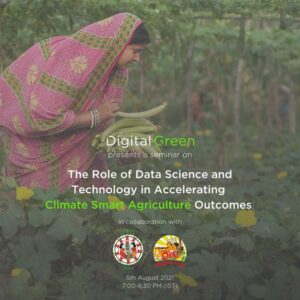 The threat of global warming and climate change to agriculture is real and severe, affecting food systems locally and globally. Among the hundreds of millions who are vulnerable to the impact of climate change, an estimated 120 Million farmers are perhaps one of the most at-risk groups. On the other hand, agriculture is also a major contributor to the climate crisis generating close to one-fifth of the total greenhouse gas emissions.
The threat of global warming and climate change to agriculture is real and severe, affecting food systems locally and globally. Among the hundreds of millions who are vulnerable to the impact of climate change, an estimated 120 Million farmers are perhaps one of the most at-risk groups. On the other hand, agriculture is also a major contributor to the climate crisis generating close to one-fifth of the total greenhouse gas emissions.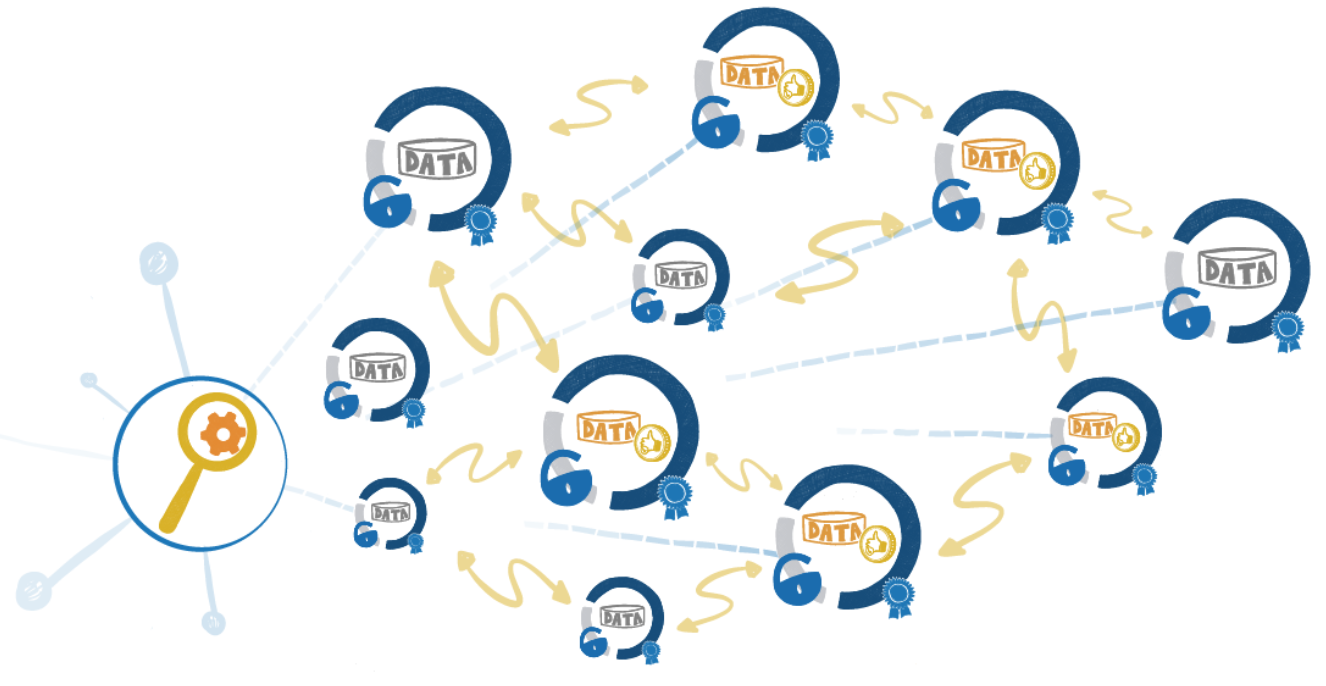
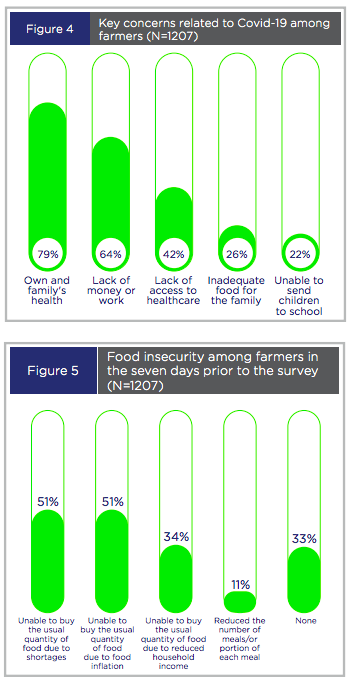
 The Feed the Future Developing Local Extension Capacity (
The Feed the Future Developing Local Extension Capacity (